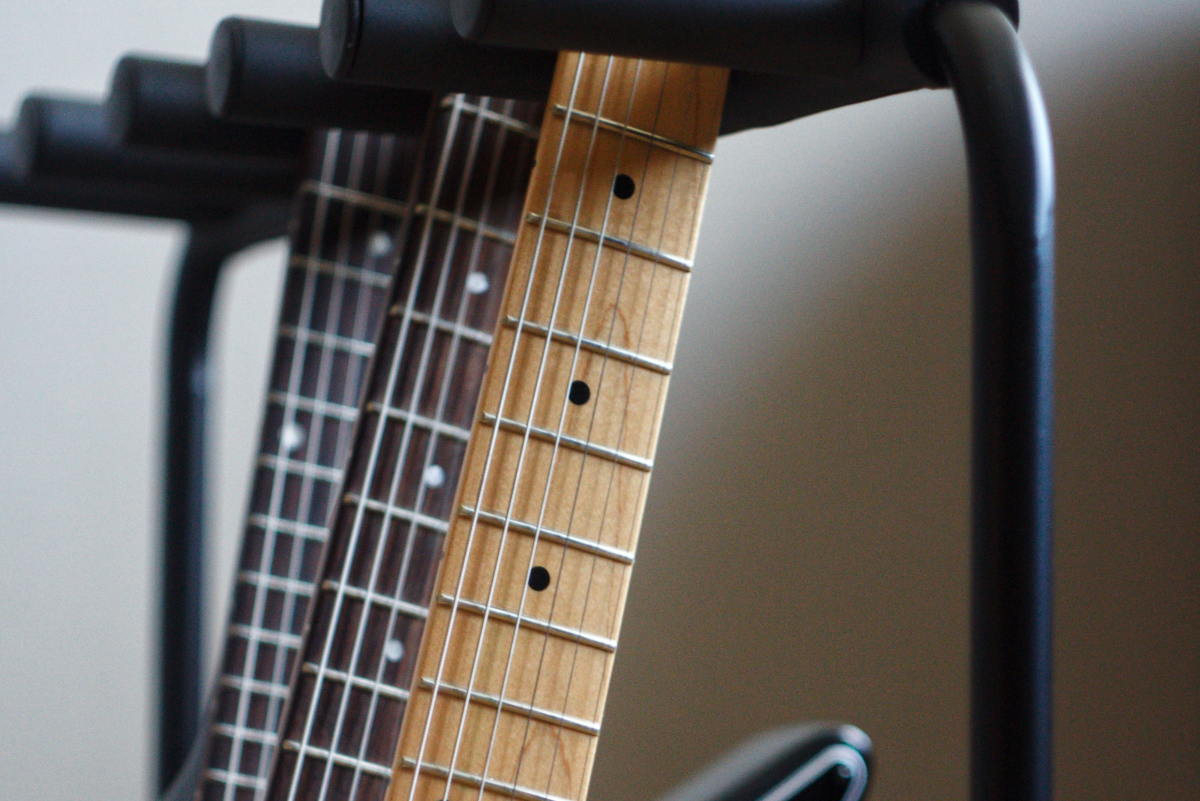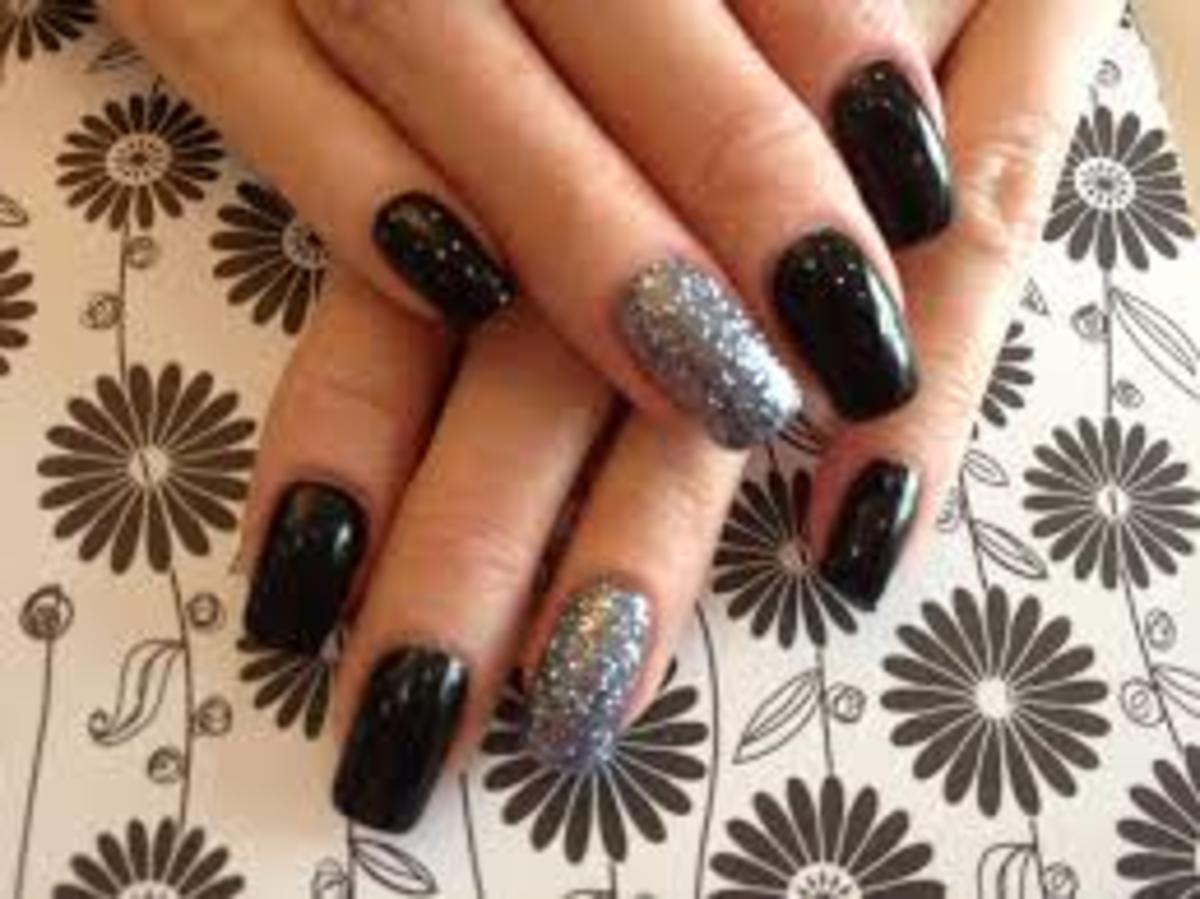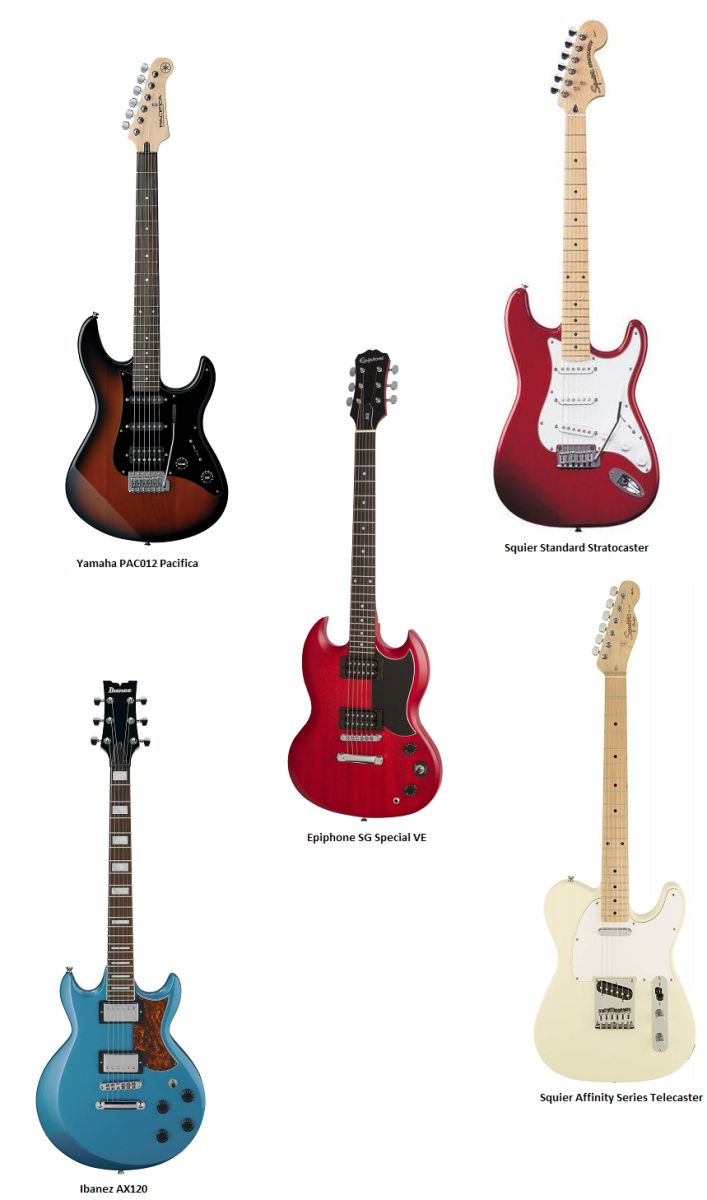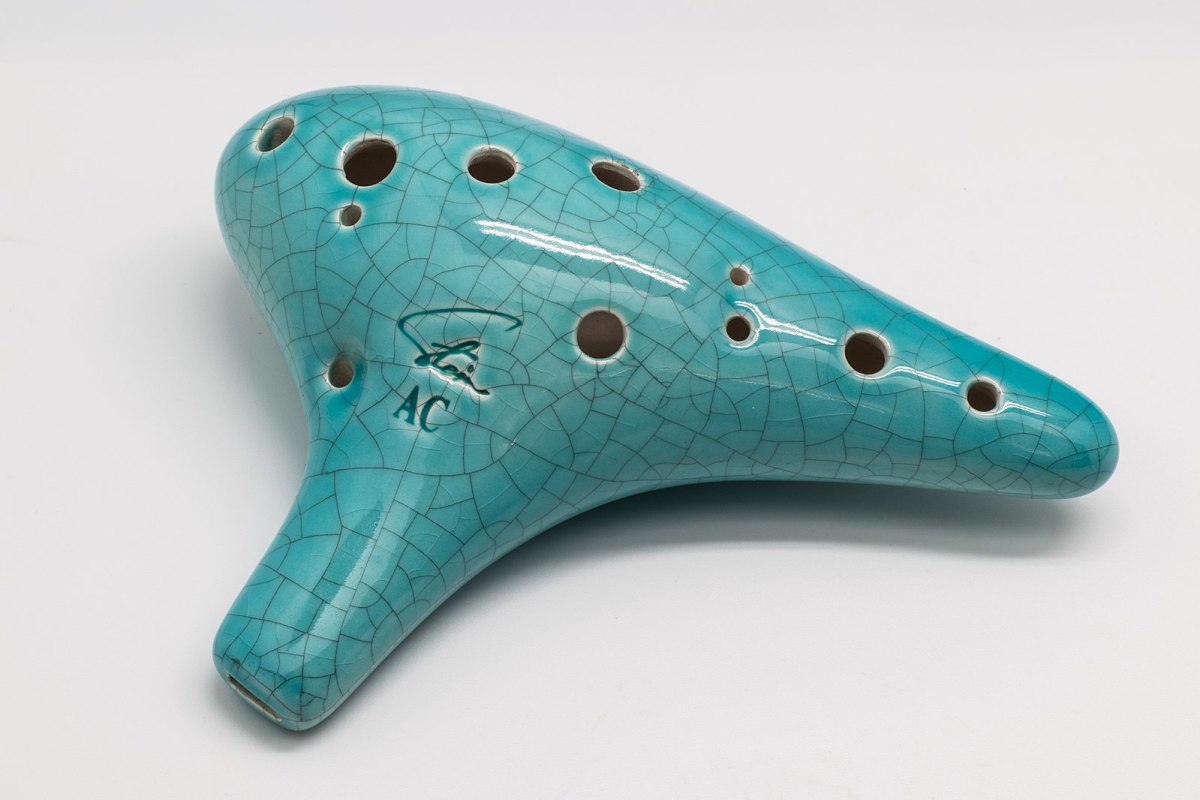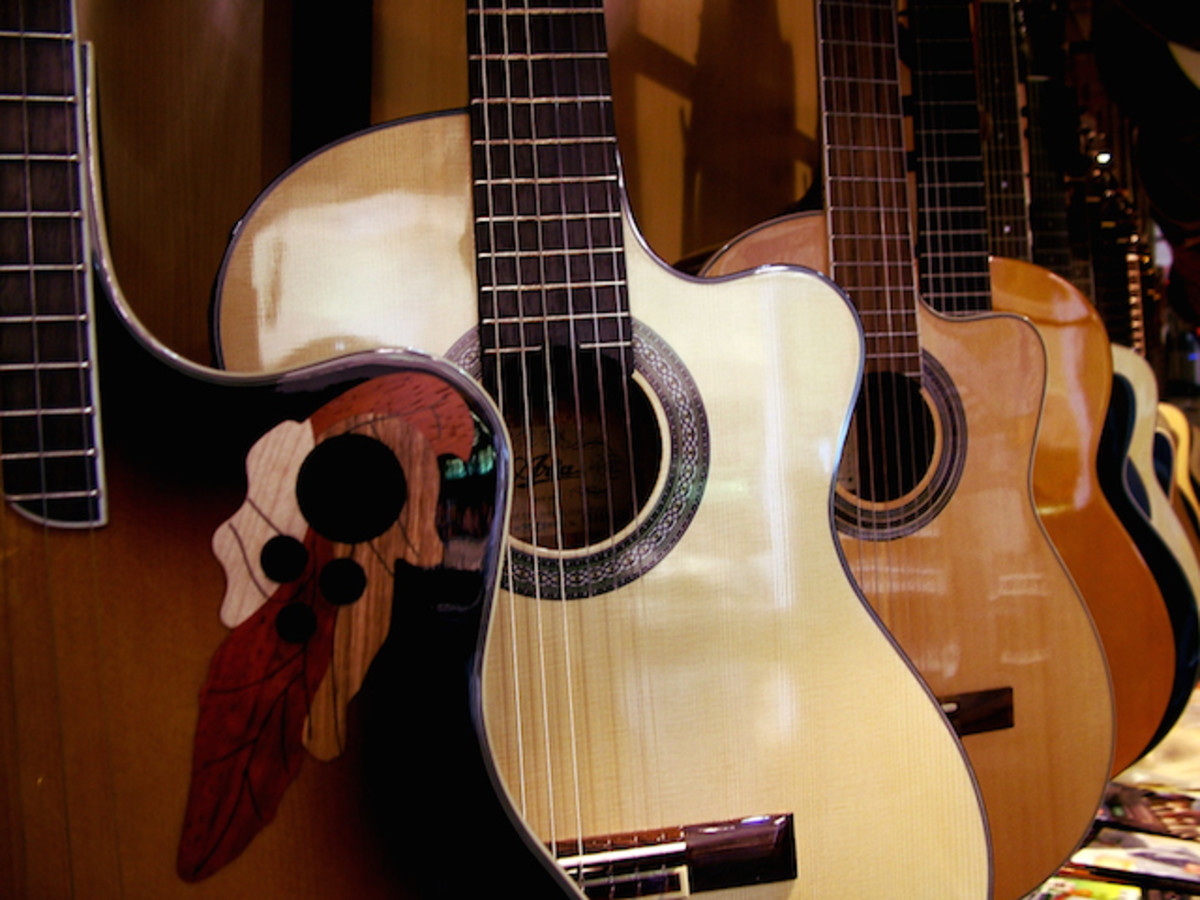How to Clean and Polish a Guitar
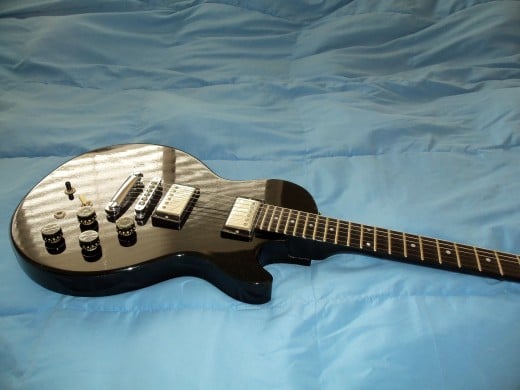
- In this exclusive series I will offer expert advise & valuable tips on how to maintain the overall appearance, aesthetic appeal, and fundamental playability of your electric guitar.
We'll touch on many things which should help you keep your prized music making possession looking like new for many years to come. Not only is the guitar fun and entertaining to play but it's also an investment, one which should appreciate in value over time if properly cared for and maintained. There is always a robust collectors market for all kinds of guitars such as Gibson, Fender, Gretch, etc. and the following maintenance guide will help transform a neglected or worn guitar into a sparkling treasure, or help to retain the luster and vitality of a well cared for instrument.
- Always Use A Clean Soft Cloth
Unless your using a brand new soft cloth right out of the plastic bag, make sure it's free from any contaminents such as household cleaning substances that can stain or permanently damage the finish of your instrument. Also make sure you shake the cloth out to discharge or remove any soot or grit material such as sand or dirt granuals that can scratch the surface while applying or buffing the polish. This should always be the first step before you begin the process to ensure there are no tiny abrasive materials hiding within the cloth that may scratch or chip the finish.
There really is a difference between a rough rigid washcloth you might find in the linen closet and the smooth soft material you find at the music store which is designed for this specific type of instrument maintenance. Hold each in a separate hand and you'll feel the texture contrast. So if your budget permits, try to use something made by Gibson, Fender or any other quality brand, they are usually very inexpensive and the end result of achieving that "Hi Gloss" professional shine are well worth the purchase.
- SOFT CLOTH EQUALS HI GLOSS SHINE & PROTECTED FINISH -

- Wipe Guitar Down Before Polishing & After Playing
First we need to wipe down the entire guitar with a soft clean cloth to remove dust and any other particles. Believe it or not one of the biggest enemies of your Electric Guitar are natural body oils. Every time you play or handle it, the natural oils which are produced by your body are transmitted from your hands or arms to the instrument. Other than storing it directly in harsh weather elements, your own body can indeed be your guitars worst enemy. When body oils are transferred to the surface, especially the metal hardware, and it's not removed, a corrosive effect may result over time just like what happens to an automobile if not properly maintained or cared for. So one way to mitigate or even eliminate the potential harmful effects of this or other substances is to take a few minutes after each playing session to thoroughly wipe down the entire body and neck. Don't forget the tuning keys and small screw heads which are susceptible and tend to rust or corrode over time if not cared for.
The preceding will go a very long way toward potentially saving a substantial amount of money on future restoration efforts, especially if it's a vintage collectable or high end model. The corrosion will indeed sneak up on your guitar if you don't take proper precautions, so spend a few minutes today wiping down the instrument and avoid tomorrows restoration expenses.

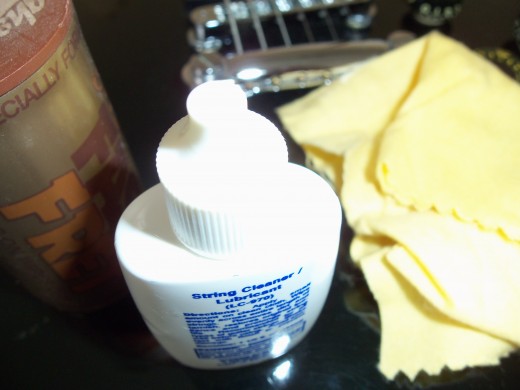
- Polish Guitar Body
Just like the Fretboard Moisturizer & Conditioner, try to use a polish made by the same manufacturer as the guitar. Usually this formula will contain chemicals and bonding agents that will compliment the hi gloss finish. But as usual, follow the manufacturers application directions and always try it on a very small inconspicuous area first to make sure it will not cause any discoloration or other harmful effects. Many of the new polishes contain advanced formulas which not only produce a hi gloss mirror glass shine but also bond to the finish resulting in maximum long lasting protection, very similar to many automobile polishes on the market today.
Try to maintain a regular schedule when using a good quality polish, I find an application every 3 to 6 months depending on how often you play keeps the appearance in showroom condition. Some guitar players still use a generic or name brand furniture spray which I guess is fine if that's what they prefer. I personally avoid using this type of household cleaner for fear of permanently discoloring or scaring the surface of my prized instruments, but of course the choice is yours. Use your own discretion and common sense before trying any chemical substance that is not made specifically for a guitar finish.
Once you decide on the type of product to use, apply the suggested amount, then rub the polish gently into the surface with a circular motion until it covers the entire area your working on. If the cloth is large enough cut it in half, use one for applying the polish and the other for buffing. Usually it needs time to dry, penetrate, and bond before proceeding. Typically a light film develops then it's time to wipe off the excess polish while gently buffing to desired shine. The process and results are very similar to polishing or waxing a car which reveals a brilliant clearcoat sheen.
- Polishing your guitar on a regular basis will not only keep it looking like new with a Hi Gloss Showroom Shine, but it will help to protect & preserve the finish which will extend it's life and provide you with many additional years of enjoyment -

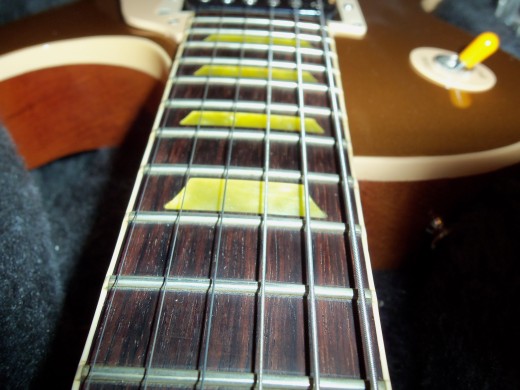

- Moisturize & Condition The Fretboard - Rosewood & Ebony
Without a doubt "Moisturizing & Conditioning" the fretboard could be one of the most overlooked elements of guitar care. Just ask someone you know who plays and it's probably a 50/50 chance he or she doesn't even realize this is an essential element of guitar maintenance, especially if they are a beginner. Or it might be just plain neglect on the part of the experienced pro. In any event, if your truly interested in keeping your guitar in the best possible playing condition, make sure you take the time to add a good quality conditioner to the fretboard at least every 4 to 6 months. Apply more frequently if you live in a dry climate.
Most guitars have a neck made out of Maple, Rosewood, or Ebony. All three need proper attention and care to ensure an extended lifetime of playability and enjoyment. Unless it's made with a synthetic substance or coated like most Fender surfaces, the authentic rosewood or ebony neck acts just like any other wood product such as your furniture, doors, clocks etc. They tend to expand or contract depending on weather conditions and the prevailing amount of moisture in the air. Wood always responds to temperature changes. Moist or humid conditions tend to make it expand as it absorbs the air, and hot dry air tends to have the opposite effect of contraction. So one way to mitigate the possible detrimental effects dry weather may have on your guitar fretboard is to apply a conditioner.
Just like your hair needs a little splash of rejuvenation on a regular basis to keep it lively and healthy, the same principal applies to the rosewood or ebony parts of your guitar. I use a lemon oil substance designed specifically for the make & model, it's made by the same company that manufactured the guitar so it's tailored to meet the specific conditioning requirements. The best time to apply a conditioner is when you change the strings but it can also be done with relative ease in between changes. Apply a small amount directly to the wood part of the neck, or on a soft cloth first, then work it into the surface going up and down the entire fretboard or concentrate on a few squares at a time. Gently rub and massage the oil into the wood making sure to cover the entire surface. Let it set and absorb for a few minutes then wipe away the excess. Try to avoid spills onto the body of the guitar, clean with soft cloth if this occurs.
The very moment a conditioner is applied you'll notice an immediate change in the color and shine of the neck, from dull and lifeless to a deep rich rejuvenated appearance. Also the playability will improve dramatically. Your hand can now slide and maneuver up and down the fretboard with greater ease.

- TIP: I use a 3 in 1 maintenance kit manufactured by "Gibson" called "Luthier's Choice" which includes all essential cleaners and conditioners ( Except a metal & chrome polish solution ). It comes with 1 bottle of string cleaner, 1 bottle of fretboard conditioner ( Lemon Oil Extract ), and 1 bottle of Hi Gloss Polish for the finish. The bottles are small but they go a very long way even if used on a regular basis. I purchased my last set about 5 years ago and I still have at least half of the contents remaining in each bottle. It can be purchased at many of the major musical instrument retailers for approximately $10 - $20. Well worth the small investment.
- TIP: Purchase a small cleaning brush if your "Kit" doesn't come with one. This soft bristle will help you clean some of the smaller nooks around the saddle area on the bridge etc. This will help minimize corrosion on the unseen parts.


<> Conceived * Designed * Developed * Written * Created By Alternative Prime <>
|
|---|
<> Exclusive Custom Images Created By Alternative Prime <>
|
|---|

- "Read & Experience" more highly acclaimed articles and creative works by this publisher - <> Click on "Alternative Prime" next to avatar at top right corner of this page <>
|
|---|

